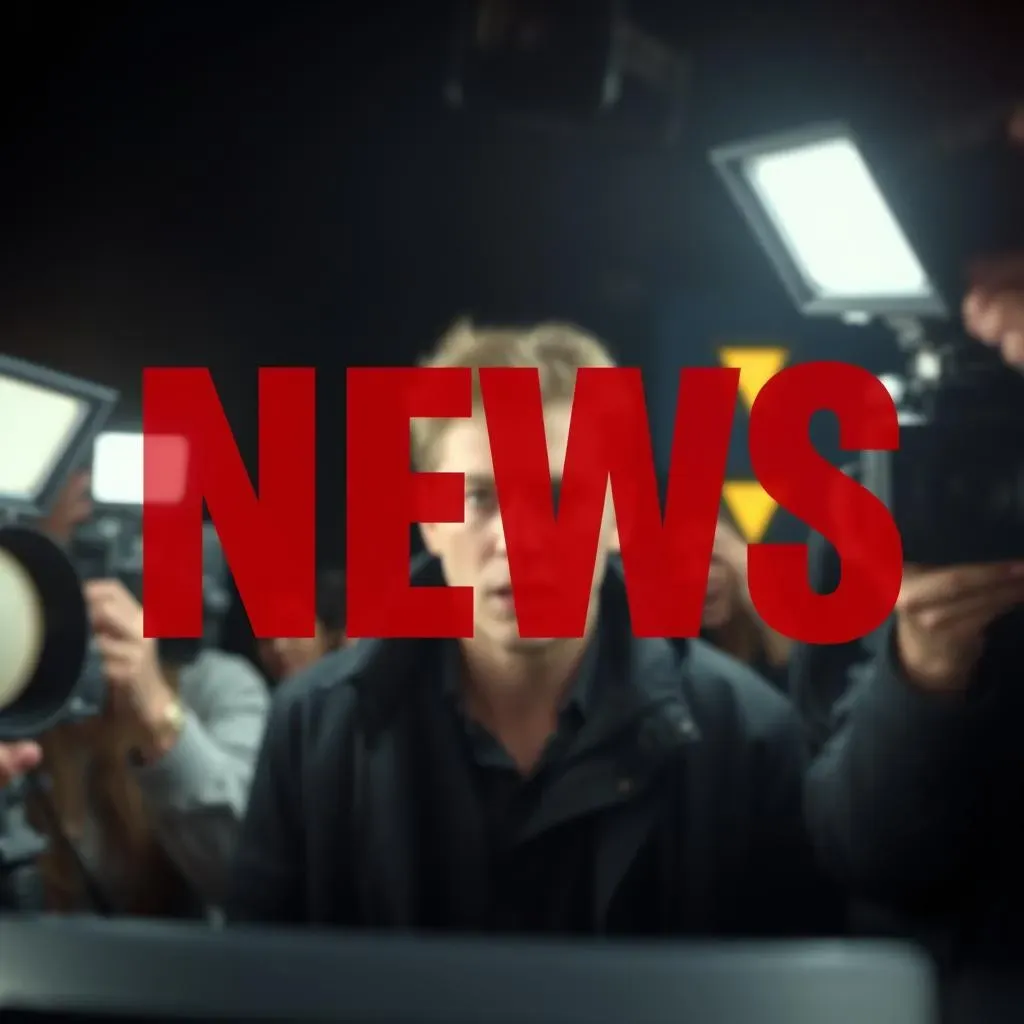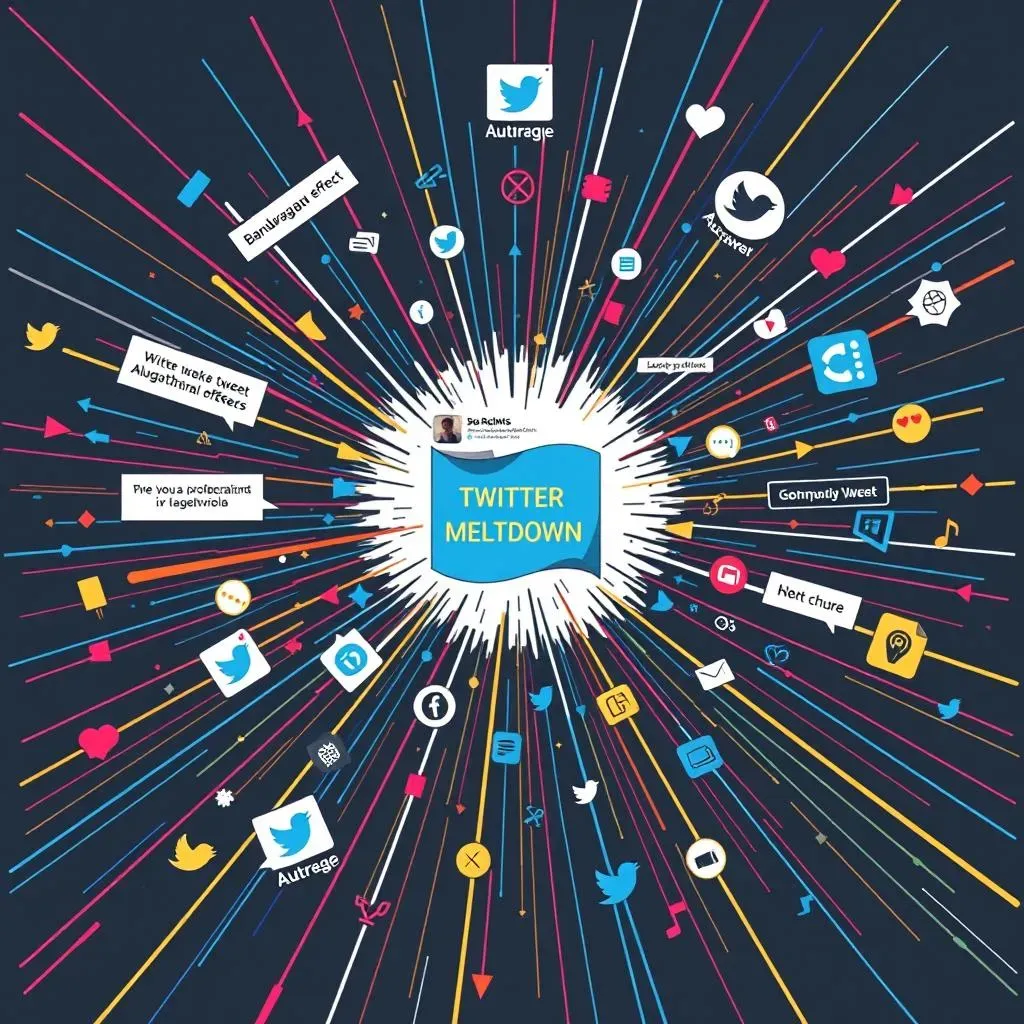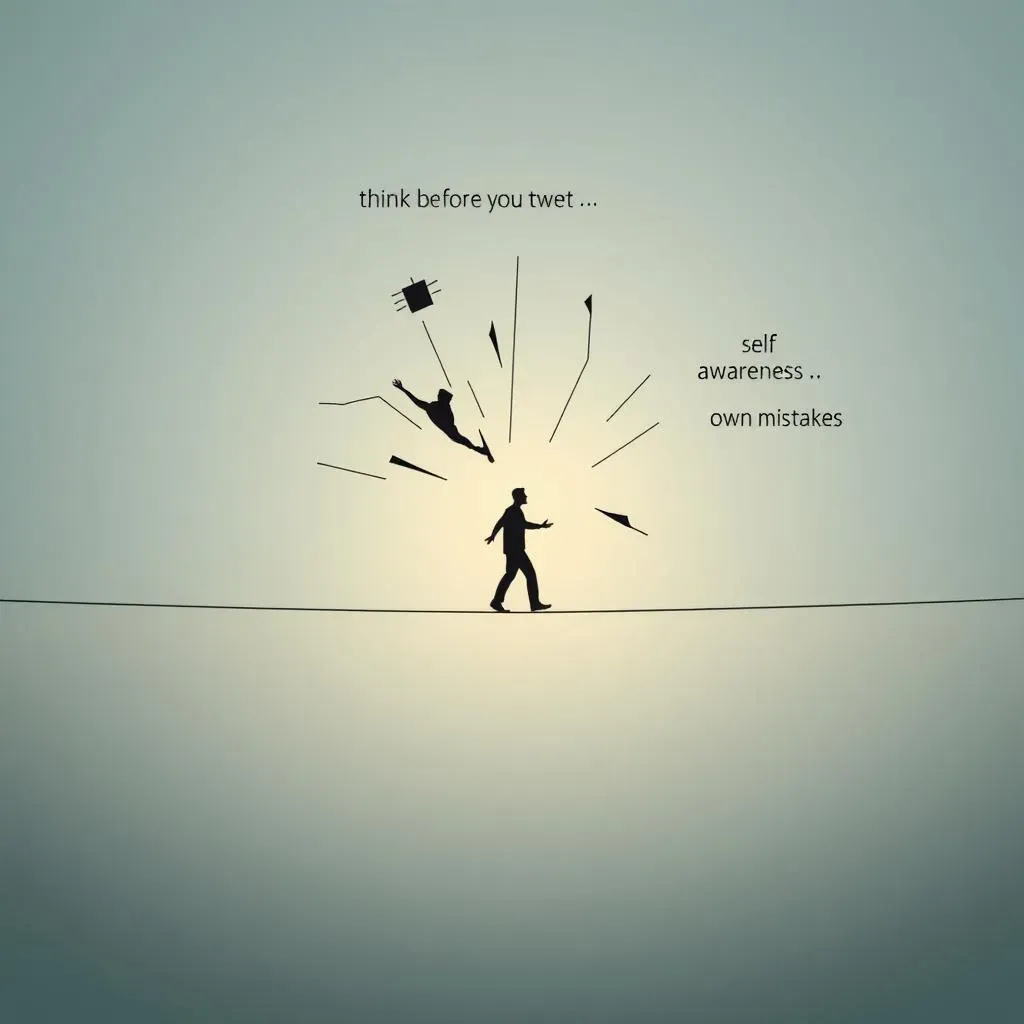Table of Contents
Ever wondered how a simple tweet can turn a celebrity's world upside down? In today's digital age, social media, especially Twitter, has become a minefield for public figures. What seems like a harmless thought can quickly escalate into a full-blown scandal, impacting careers and reputations. We've all seen it: one minute a celebrity is on top of the world, the next they're facing public backlash for a poorly worded tweet. This isn't just about bad jokes or controversial opinions; it's about the power of 280 characters to make or break a career. In this article, we'll explore some of the most notable celebrity Twitter controversies, examining how impulsive tweets went viral and resulted in real-world consequences. We'll look at the anatomy of these Twitter meltdowns, trying to understand why some tweets blow up and what can be learned from these public mistakes. Think of this as a cautionary tale, a guide on what not to do when you have a large following and a tiny character limit. So, buckle up and get ready to see how easily a celebrity's online world can crumble with just one bad tweet.
Tweets That Cost Careers: Celebrity Twitter Controversies

Tweets That Cost Careers: Celebrity Twitter Controversies
The Case of James Gunn: Jokes That Didn't Land
Remember James Gunn? The guy who directed those awesome "Guardians of the Galaxy" movies? Well, before he was making superhero flicks, he had a history on Twitter. Some old tweets resurfaced, and let's just say they weren't exactly family-friendly. These were jokes about topics that many found offensive, and they definitely weren't in line with the squeaky-clean image Disney wanted for their Marvel movies. Even though Gunn later said his humor had evolved, the damage was done. Disney initially fired him from the franchise. It's a classic example of how what you post online can come back to bite you, even if it's from years ago.
Roseanne Barr's Ape Tweet: A Show's Demise
Then there's Roseanne Barr. She had this huge comeback with a reboot of her old show, "Roseanne." Things were going great, until... she posted a tweet comparing a former Obama advisor to an ape. Yeah, not good. This wasn't just a little slip-up; it was a blatant act of racism that sparked immediate and intense backlash. ABC, the network airing her show, didn't hesitate. They canceled "Roseanne" faster than you can say "controversy." She got dropped by her representation, and her Twitter account disappeared. It's wild how one tweet can erase so much so quickly.
Celebrity | Controversial Tweet | Consequence |
|---|---|---|
James Gunn | Offensive jokes from the past | Initially fired from "Guardians of the Galaxy" |
Roseanne Barr | Racist comparison to an ape | "Roseanne" reboot canceled, lost representation |
Betsy DeVos and Marsha Blackburn: Political Twitters
It's not just about entertainment; politics are also a hotbed for Twitter fails. Betsy DeVos, on her first day as Secretary of Education, tweeted asking where to find pencils. Seriously. This immediately made her a target for mockery, highlighting her perceived lack of experience in public education. Then there's Representative Marsha Blackburn, who launched a Twitter poll about repealing Obamacare. Her constituents spoke loud and clear: 84% voted against the repeal. It's a great example of how social media can be used to gauge public opinion, but also how it can backfire if you're out of touch with your audience. These examples show that a poorly thought-out tweet can have real political ramifications.
The Anatomy of a Twitter Meltdown: Why Celebrity Tweets Go Viral

The Anatomy of a Twitter Meltdown: Why Celebrity Tweets Go Viral
So, what makes a celebrity tweet go from zero to viral catastrophe? It's not always about the content itself, but also about the context and the speed at which information travels online. Think of it like a perfect storm. You have the initial tweet—maybe it's insensitive, maybe it's just badly worded—but then the internet pounces. It gets amplified by shares and retweets, and soon, it's trending worldwide. The outrage machine kicks in, and everyone's weighing in, often without even knowing the full story. It's like a digital wildfire, spreading rapidly and consuming everything in its path. What's fascinating is how quickly a single tweet can become a symbol of a larger issue. It's not just about the celebrity anymore; it's about what their tweet represents to the public.
Let's break down some of the key ingredients in a Twitter meltdown. First, you've got the outrage factor. If a tweet touches on a sensitive topic—race, gender, politics, anything that people feel strongly about—it's going to ignite a firestorm. Then, there's the bandwagon effect. Once a tweet starts gaining traction, people tend to pile on, even if they don't fully understand the nuances of the situation. It's like a giant game of telephone, where the original message gets distorted and exaggerated as it spreads. And let's not forget the role of social media algorithms. These algorithms are designed to push content that generates engagement, and nothing generates engagement quite like a good old-fashioned controversy. So, even if a tweet is relatively obscure, an algorithm can catapult it into the spotlight, turning a minor misstep into a full-blown public relations disaster.
Factor | Description |
|---|---|
Outrage Factor | Tweets touching sensitive topics (race, gender, politics) ignite strong reactions. |
Bandwagon Effect | People join in the criticism, often without fully understanding the situation. |
Algorithm Amplification | Social media algorithms push controversial content for engagement. |
Learning from the Fails: Navigating Social Media as a Public Figure

Learning from the Fails: Navigating Social Media as a Public Figure
Okay, so we've seen the carnage, the career-ending tweets, the viral meltdowns. Now, let's talk about what we can learn from all this mess. If you're a public figure—or even just someone who wants to avoid social media disasters—there are some key lessons here. First and foremost: think before you tweet. It sounds simple, right? But it's amazing how many celebrities just fire off a tweet without considering the potential consequences. It's like they've forgotten that anything they post online is essentially a public statement, forever etched into the internet's memory. So, before you hit that "send" button, take a deep breath and ask yourself: could this be misinterpreted? Could this offend anyone? Is this really something I want the world to see?
Another crucial tip is to cultivate a sense of self-awareness. Understand your audience and what they expect from you. If you're known for being a role model, posting something that contradicts those values is going to raise eyebrows. Similarly, if you're in a sensitive position, like a politician or a CEO, you've got to be extra careful about how you express yourself online. It's not about censoring yourself entirely, but about being thoughtful and responsible. And if you do make a mistake, own up to it. A sincere apology can go a long way in rebuilding trust. Trying to deflect blame or make excuses is only going to make things worse. Remember, the internet is like an elephant; it never forgets. So, be mindful of your digital footprint and try to build a positive online presence, not a controversial one.
Tip | Description |
|---|---|
Think Before You Tweet | Consider the potential consequences of your posts before sending. |
Self-Awareness | Understand your audience and what they expect from you. |
Own Your Mistakes | Be sincere and responsible when you make an error online. |
Now, I know what you might be thinking: "This all sounds like a lot of work!" And yeah, it kind of is. But navigating social media as a public figure is like walking a tightrope. One wrong step, and you could be falling into a pit of public outrage. So, is it worth it? Well, that's a question each person has to answer for themselves. Some celebrities have decided to ditch social media altogether, which is totally valid. Others have learned to use it more cautiously, engaging with their fans while avoiding potential pitfalls. The key takeaway here is that social media is a powerful tool, but it's also a dangerous one. It's up to each individual to decide how they want to wield that power. And remember, a little bit of common sense can go a long way in preventing a social media disaster.
Ultimately, learning from the fails of others is the best way to avoid making the same mistakes yourself. The celebrity Twitter controversies we've discussed aren't just isolated incidents; they're case studies in how not to use social media. They demonstrate the importance of thinking critically, being responsible, and understanding the potential impact of your words. So, the next time you're about to tweet something, remember the cautionary tales we've discussed. Consider the consequences, be mindful of your audience, and always strive to be a positive force online. It's not about being perfect; it's about being thoughtful and considerate. And that's a lesson we can all take to heart, whether we're celebrities or not.